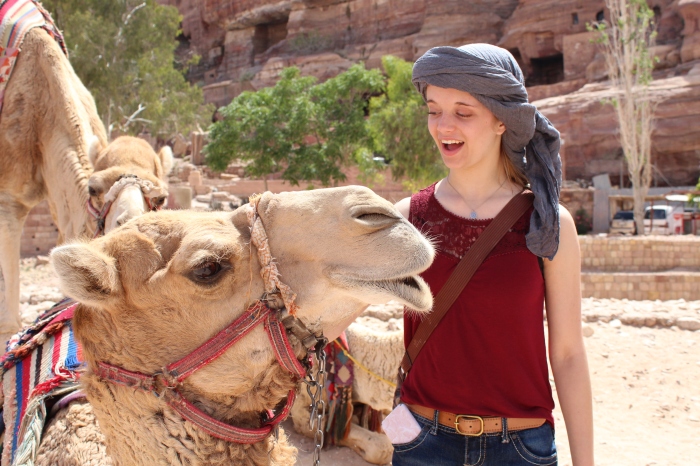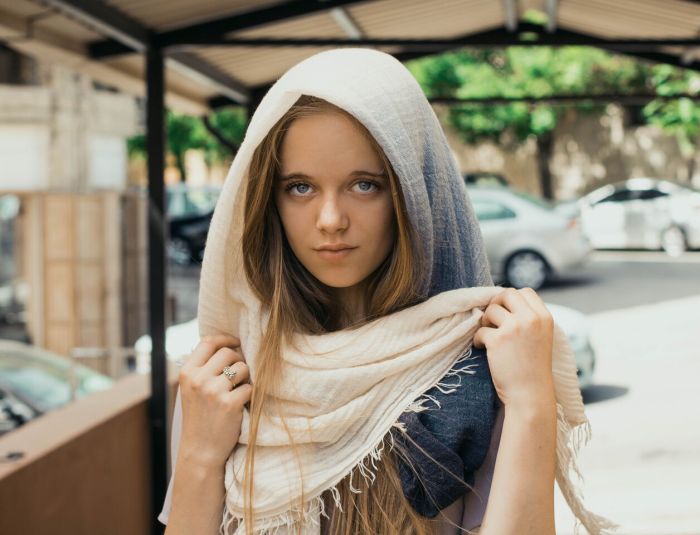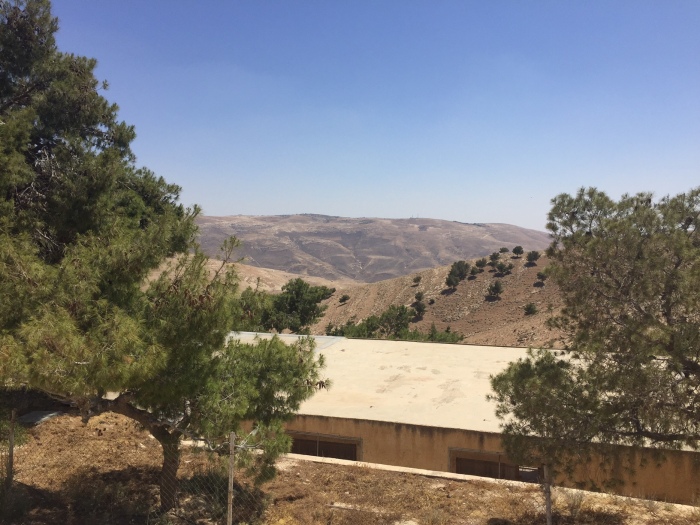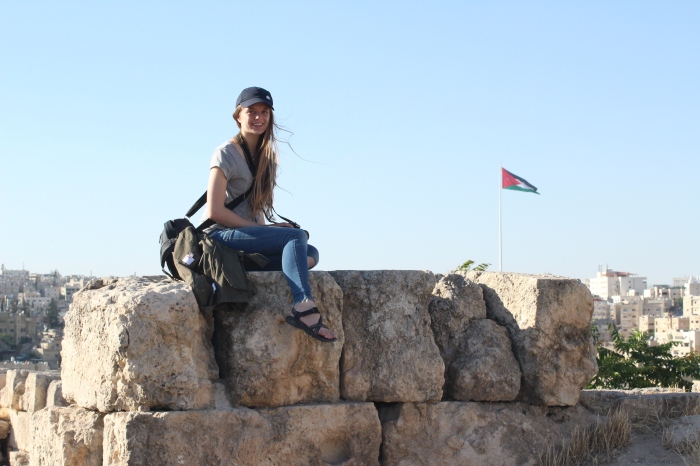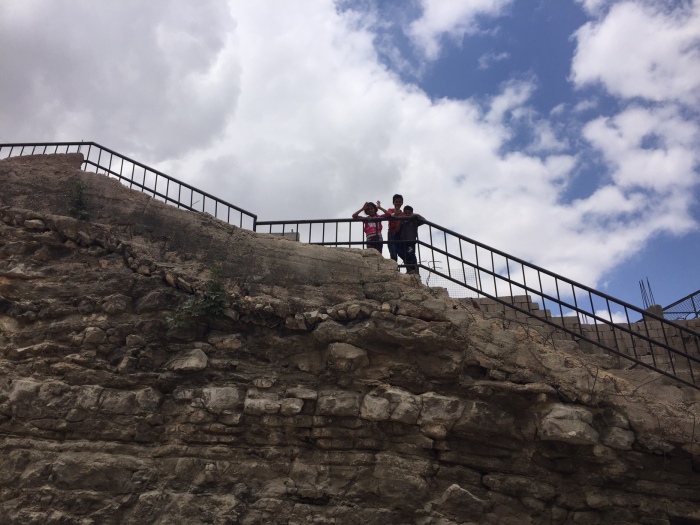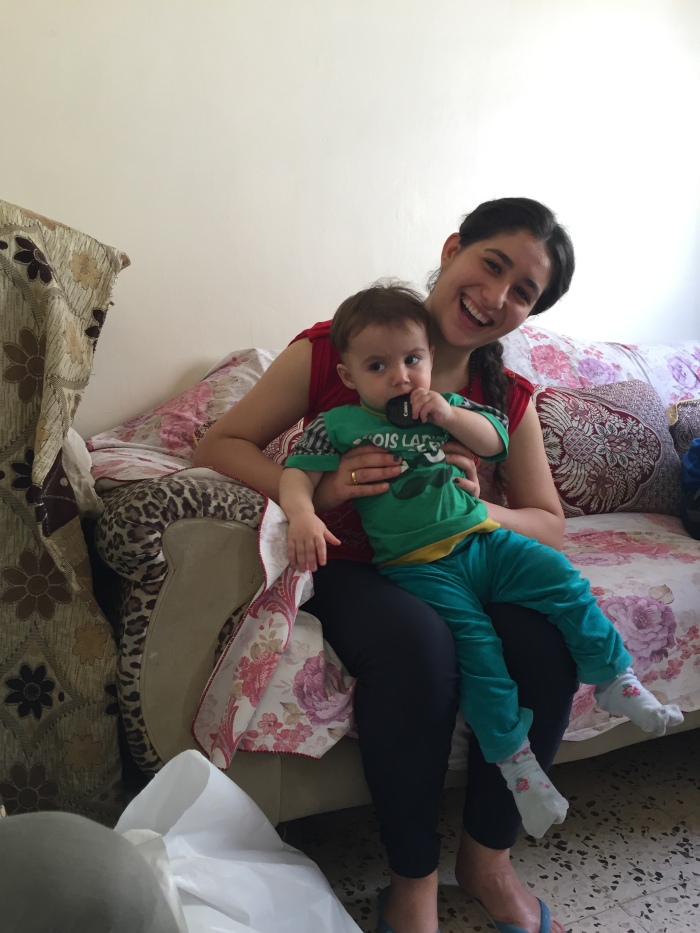Nothing I have ever done before compares to the time I have spent in Jordan. I got to hear so many stories of families before having to leave them. It’s hard to hear about their struggles and become attached to them, only to have to leave them immediately.
I struggled with this from day one when I met with my first family. Thankfully, I got to revisit them later in the week to interview them.
I haven’t even had the privilege of writing about every family I met with. On the first and second day, we met with three families each. All were Iraqi Christians, all had come from the same village, and all had made the same journey to Kurdistan before deciding to leave for Jordan. Each was, however, unique because of their family situation. All had kids, but their ages differed widely. Some had aging parents with health issues, and some had children with health issues. Some of the bread winners in the family had health issues themselves. All of them had fled from the violence of ISIS, and I wanted to do everything for every one of them.
I wanted to get them the needed VISAS, pick them all up, and put them on a flight to a safe country where they could start new lives, but that’s just not how it works. These things take time and patience and I need to have the strength to accept that I don’t know God’s plan for every family. All of them are here for a reason, and all of them (the Iraqi Christians at least) are models of faith in God.
Nothing I have ever dealt with compares with their experiences, yet their faith remains strong. My job in their houses was to bring them food, toys, and hope, and I did, but now that I look back on it, they gave me faith. We as American Christians can look to them for examples of faith. The Iraqi church service was another moving experience. The way they reached out in pray for our team moved me. It made me remember how alive God is here for these people.
In contrast, our next few visit days were with Muslim Syrian refugees. They also had different aged kids and various health issues. Each family is so painfully unique that it makes me want to reach out even more. All of them had fled from the war in Syria. They tell us that people were being beaten in the streets and that fear reigned supreme. Some of them had entered into camps, but had to escape because the conditions were too bad for them and their children.
Incidentally, the only Muslims I met with were women. Out of the four families I visited, only two had living husbands, and the other two husbands were not in the home at the moment. One woman in particular had six kids. She was raising them by herself with little outside support. Of course I want to just swoop in and fix everything. I want to give them a nicer house, and I want the mother to be able to work to earn money to feed her kids. In a perfect world, I also want them to get their VISAS. My dearest wish would be for them to follow Jesus.
It’s hard to see these people in the dark even after traveling so far. They don’t love Allah. They fear him. They pray to him because they fear he will be angry with them if they don’t. This may be the hardest thing of all for me because I want to see them again, even if it’s not until we get to Heaven. But then I remember that this change doesn’t happen overnight. Over time, they may see the love that Christians have for their God and other people and realize that they want to know more about Him.
My visit is only one step in the process of the humanitarian process so I should be content with it. My greatest hope is that my words will get them thinking. Muslims don’t think. They don’t question anything about their faith because if the Quran says it, then must be true. I hope they see the kindness of the Christians reaching out to them and want to know more.
The refugee visits were the reason I came. Any special experience like seeing the Dead Sea and Petra were added bonuses. While they were amazing and unforgettable experiences, the trip would have been complete without them. The trip could not have gone on without the Stephen team.
These men and women are chiefly Iraqi refugees, but some are Syrian. They gave their time to drive us around and translate for our home visits. Rather than just driving and translating for us, they ate meals with us, and became our friends. They were beside us to guide us through anything from ordering food at restaurants to speaking to refugee families.
Now since they are refugees too, I want them to be able to move on to other countries where they and their families can live, work, and go to school. But, like the refugees we visited, I think that God put them here for a purpose. Once again, I hope that we were a blessing to them with our presence, and I hope they know how much we appreciate them, but nothing could compare with the good example they set for us.
It was truly a blessing in every way to become acquainted with them.
That’s why it’s so hard to leave. I don’t want to think about leaving any of these people for good. Then I remember that God works in mysterious ways. He definitely blessed me with letting them into my life, and I have faith that He will bless them in ways they could never imagine.
Even if I never see them again on earth, we will all live our lives for God. Even though the trip was a very good time, it has to end. I’m grateful for the experience, and I’ll never forget it. Now that the sad times have come, it’s all the more important to cling to God and to the good times.
